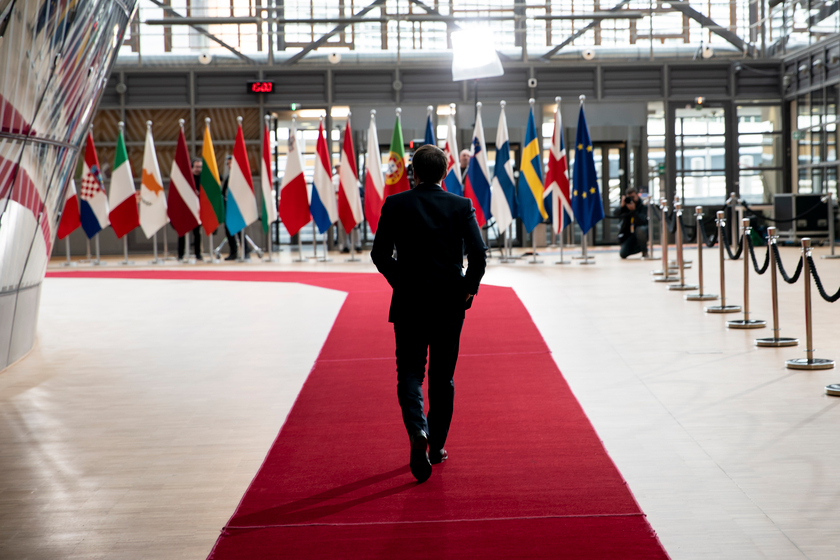In May 2019, the citizens of the European Union were invited to go to the polls to select their representatives at the European Parliament and thus decide on the future of Europe. In France, the election was held on Sunday 26 May and a large number of you voted.
The turnout to these European elections, higher than expected, was proof of a democratic surge, an interest in Europe and the determination of European people to change things and come together to move forward.
With Europe, the expression “stronger together” takes on a whole new meaning.
“When many believed that Europe was tired, and less and less democratic, our people simply told us that they wanted Europe.”
Emmanuel Macron, 28 May 2019 at the European Council.
Two days after these elections, the 28 Heads of State and Government of the European Union met in Brussels for an informal summit. Taking into account the results of the election, they talked about new priorities for the future of Europe and those who would be a part of building this future. The European leaders began to draft an agreement on appointments to senior positions at the head of the European institutions.
“We are facing a new step in the European adventure. There is a need to build something new, a new project that reflects what the European people have chosen. The new force for good that we are currently building will play an important role.”
Emmanuel Macron, 28 May 2019 at the European Council.
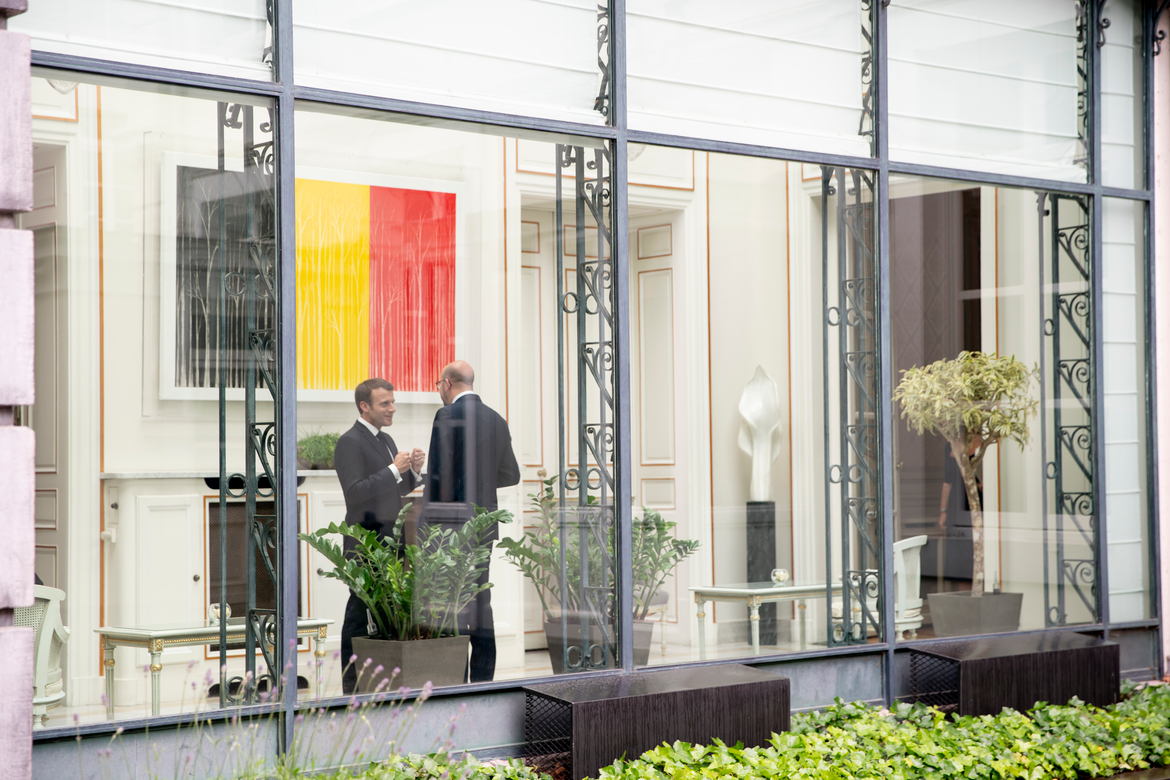
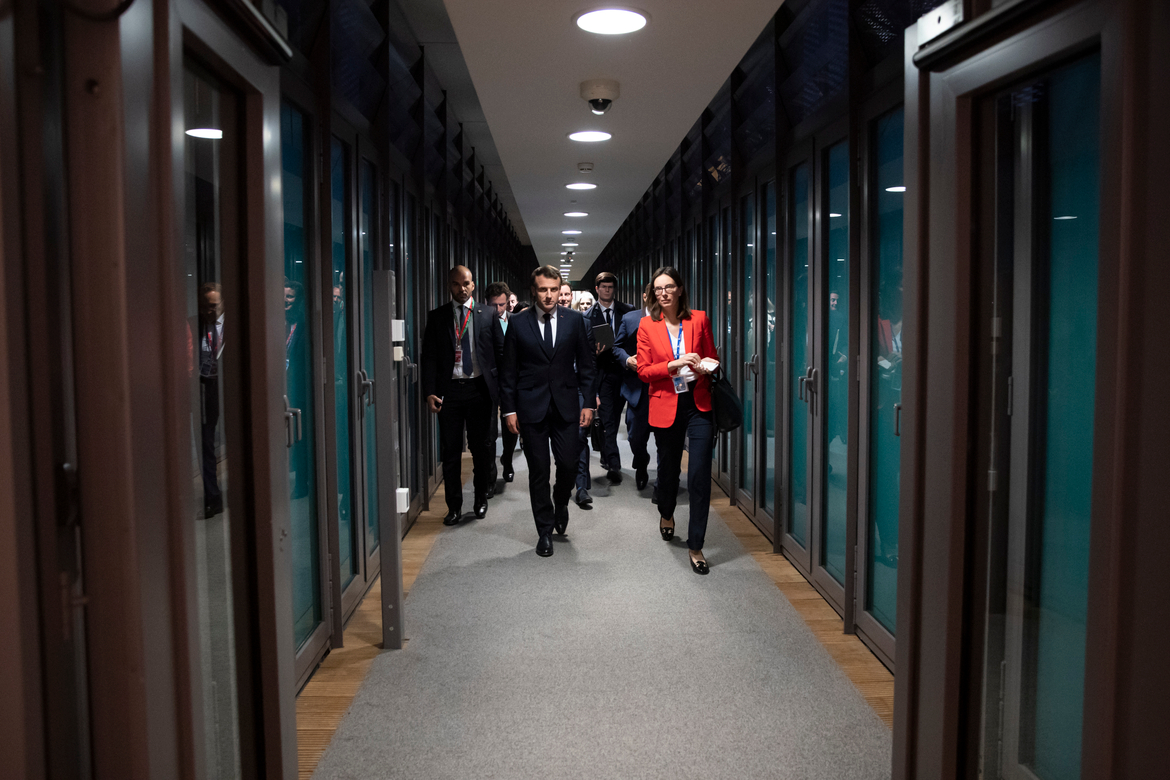
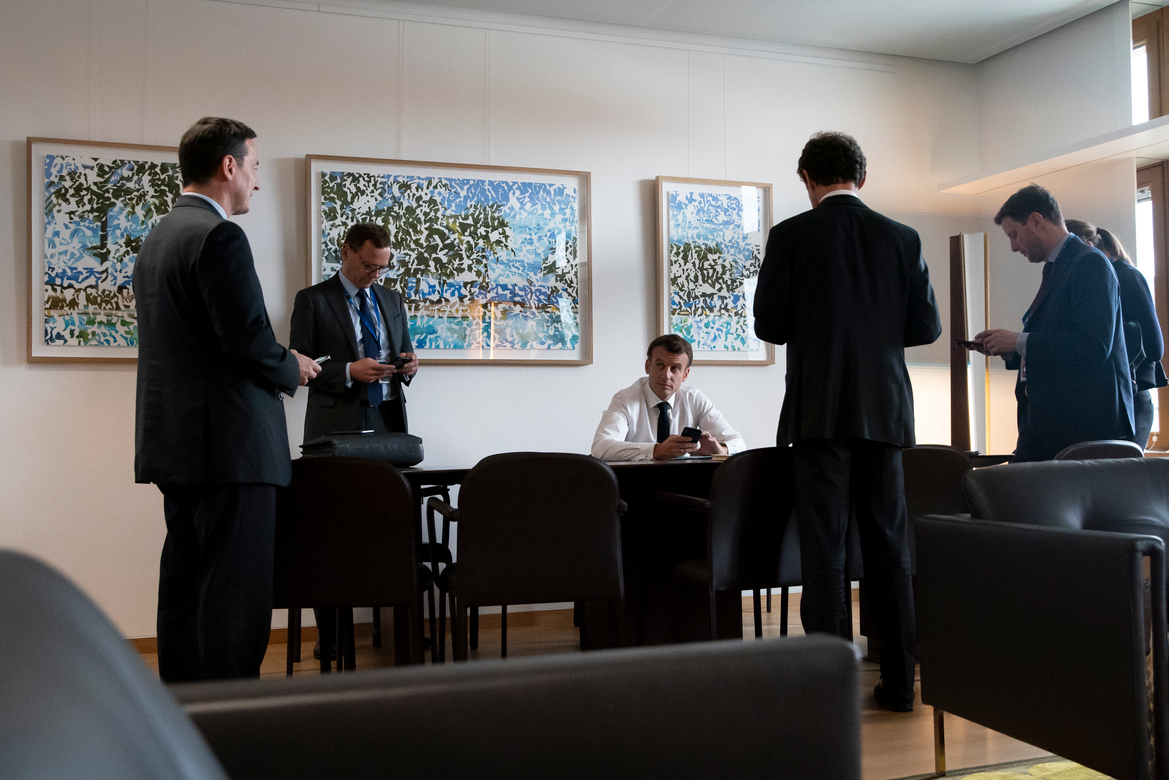
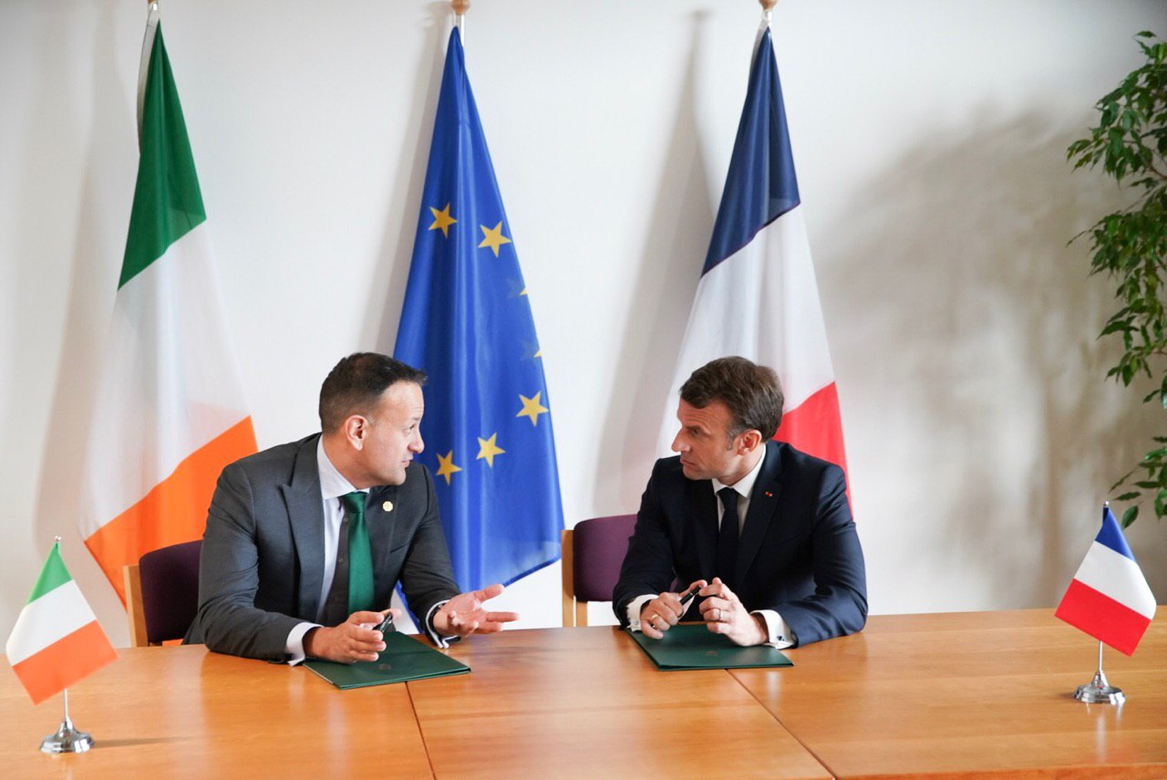
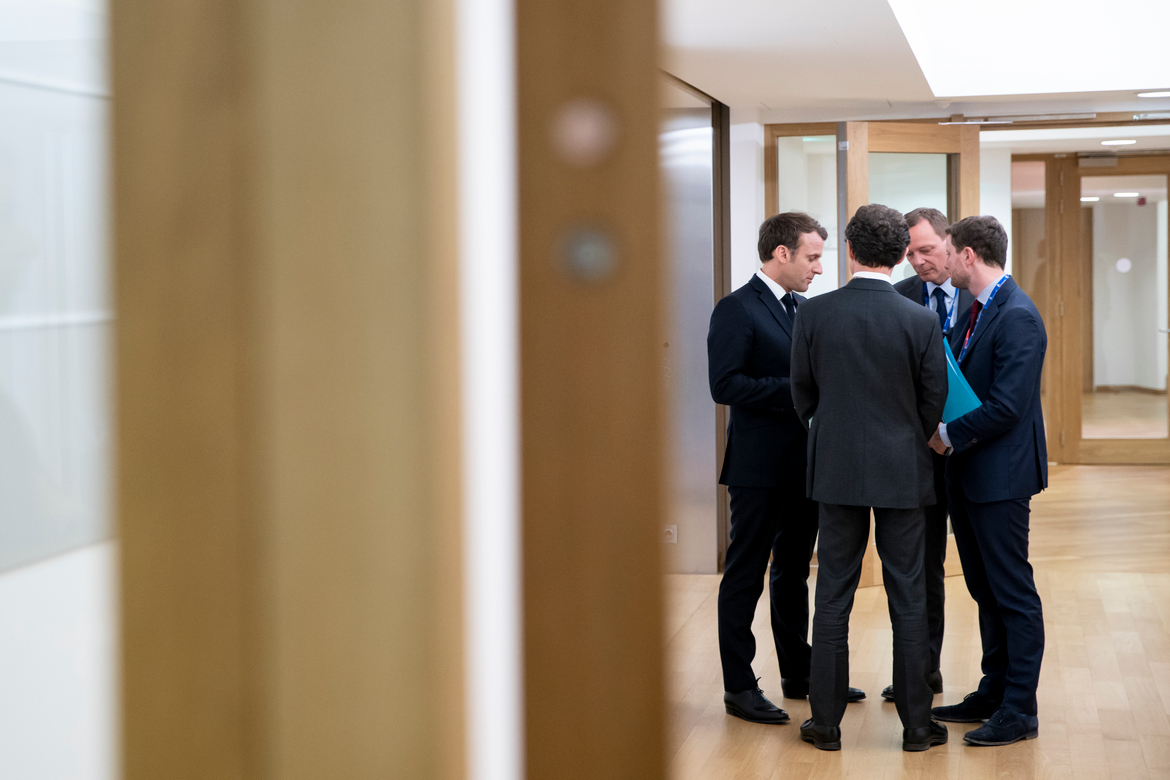
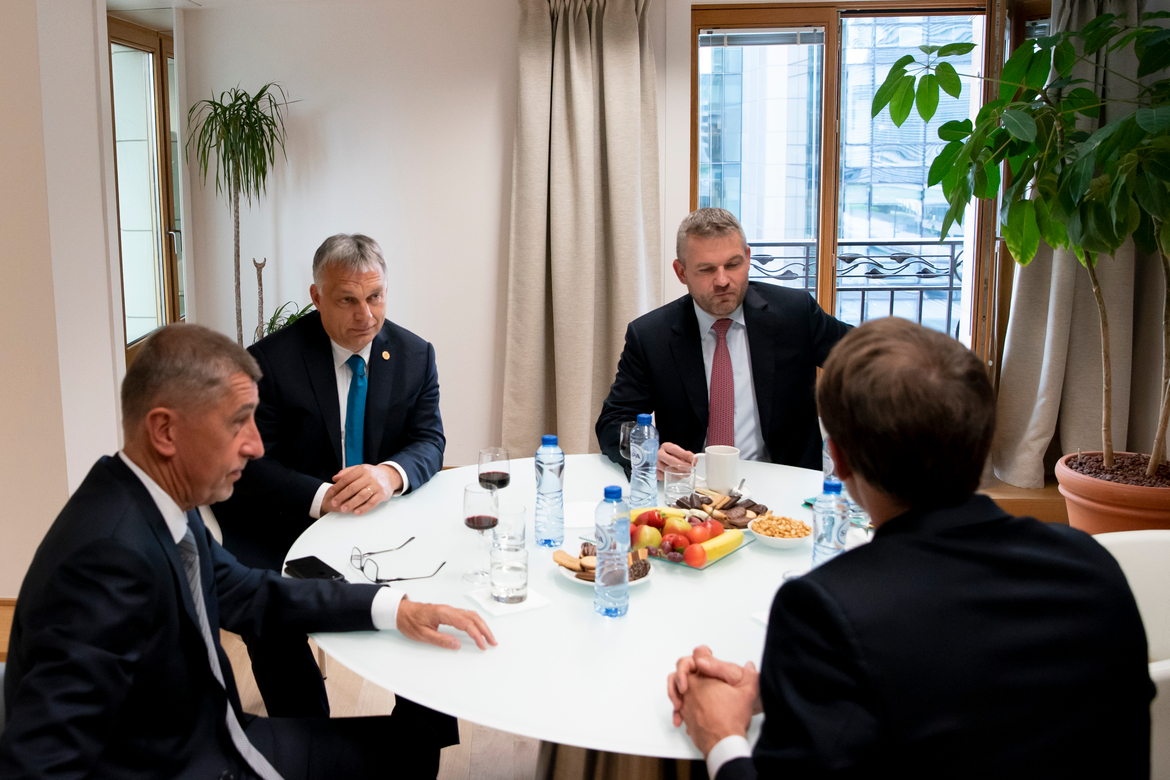
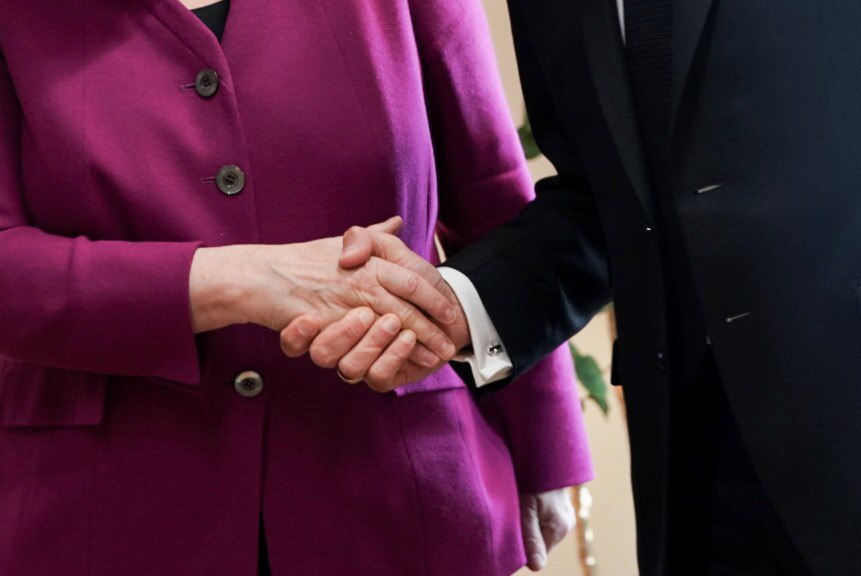
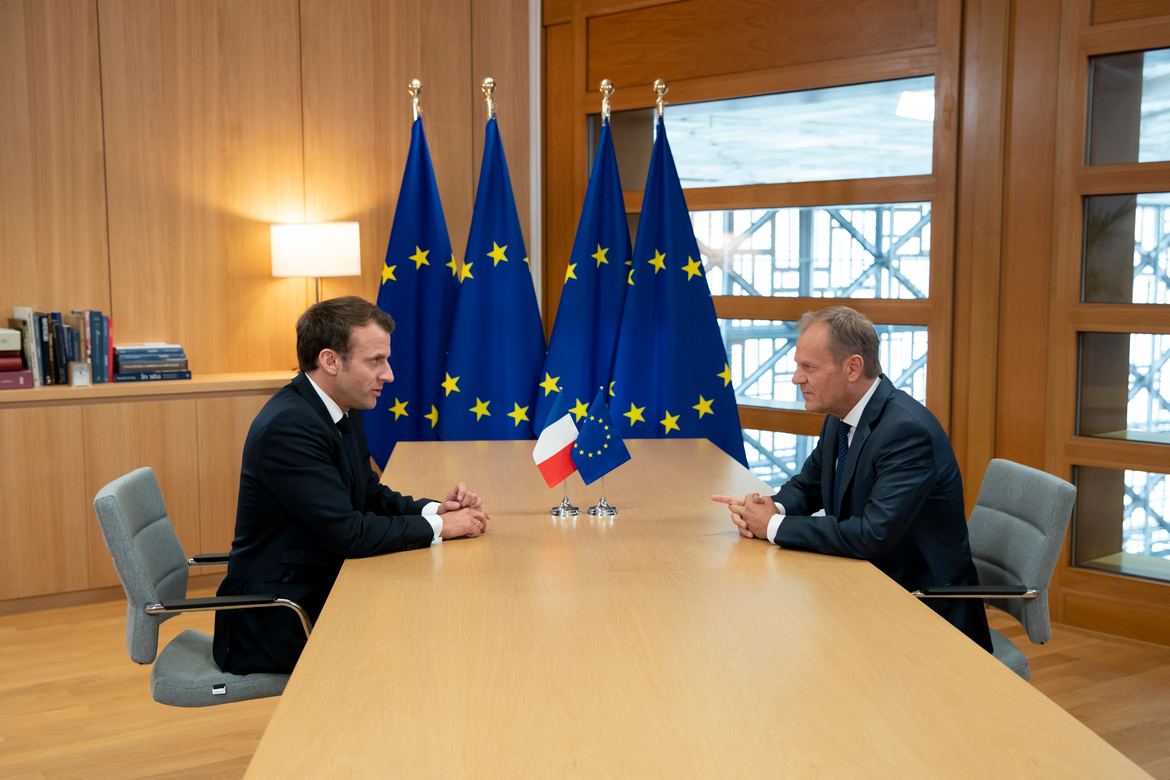
Read the statement by President Emmanuel Macron upon his arrival at the European Council for the informal dinner for the Heads of State and Government of the European Union:
28 May 2019 - Check against delivery
Statement by President Emmanuel Macron upon his arrival at the European Council for the informal dinner for the Heads of State and Government of the European Union.
Ladies and gentlemen,
We are meeting for an important summit following the European elections that took place last weekend and which, I think, sent several clear messages. The first is that, when many believed that Europe was tired, and less and less democratic, our people simply told us that they wanted Europe, and to talk about Europe. Across Europe, we secured a turnout that hadn’t been reached in 25 years, and in France, since 1984. So this turnout places an obligation on us all. And now we are faced with a complete shift and a new step forward in the European adventure. For the first time since the European Parliament came into existence, there is no majority with two parties. There is a need to build something new, a new project that reflects what the European people have chosen. In this respect, the new central force for progress that we are currently building will play a role, and be significant. In this context, today I would like us to focus on the essential, and the central aspects of the project that we want to carry out in Europe over the next five years. The first aspect is our response to the climate emergency. It is a very strong message sent by the elections in France, and everywhere in Europe. Alongside those who have this vision and for the good of our citizens, we must find a clear solution at the European level to the climate challenge. The second thing we must do is rebuild the model for growth and progress. That means investing in innovation, artificial intelligence and new technologies. We must continue working on job creation in our economic space, but also on standards, minimum social thresholds, because no economy will succeed if its people are not faring better. Especially in countries where today there is no minimum wage or social rights have deteriorated, and if there is no return to a form of European convergence. Thirdly, we need a Europe that protects better. I also want us to promote ambitious projects in the next five years, in the fields of migration, border protection and defence. I have spoken of my ambitions, but a thorough overhaul of Schengen, rebuilding a common border protection and solidarity area, with the real prospect of common defence, are key elements. And we must also make progress in deepening the euro area. France has long been committed to this project. We reached agreements a few months ago. In these five coming years, we need to go much further in this respect. We need to get behind and build up a European ambition for the next five years and we will have to choose people based on this ambition. We need women and men who embody this renewal, who have the experience and credibility that enables them to take on these responsibilities and who reflect these ambitions and fully embrace them. This is what our discussion today should focus on, in my view.
The President of the Republic plays a central role in this dialogue on the future of the European institutions. His project for Europe is centred on three major priorities:
- The climate emergency;
- Renewing the economic and social model;
- Strengthening our security.
To find out more, watch President Macron’s statement following the informal European Council dinner on 28 May 2019:
28 May 2019 - Check against delivery
STATEMENT BY PRESIDENT MACRON FOLLOWING THE INFORMAL DINNER FOR THE HEADS OF STATE AND GOVERNMENT OF THE EUROPEAN UNION.
A lot of discussions have been conducted today. Personally, after several bilateral conversations in recent days, in Paris and on the telephone, I had the opportunity first of all to meet the two negotiators from the socialist and liberal-and-democrat groups, and so five of us had lunch together. I then had the chance to talk to the four members of the Visegrád Group. I saw President Tusk and Chancellor Merkel, and we had an initial meeting of the 28 Member States, which gave us an opportunity to have a substantial discussion. I also want, before anything else, to pay tribute here to two colleagues. The first is the Prime Minister of Finland, who today completed his last Council and who has been a constructive colleague with whom we made a lot of progress on issues that weren’t necessarily evident between our two countries. I really want to pay tribute to him. I visited Finland a few months ago, and I really send him my best wishes. Obviously we also paid tribute to Theresa May, following the announcement she made recently.
This Council enabled us to identify a few key points. First of all, everyone acknowledged the importance of European citizens’ votes, their strong turnout all over Europe, which places an obligation on us, the mobilization of young people and the new scenario that emerges from it. The new scenario means one thing: we can’t replicate old habits. And the new scenario is simple: an actually unprecedented mobilization, the rising importance of the climate issue, which hangs over us all, and, for the first time since 1979, the impossibility of gaining a majority in the Parliament with only two parties, and hence the need to build a genuine coalition of progress between all pro-Europeans. This evening we also agreed that there’s nothing automatic about the Spitzenkandidat and therefore that our institutions must be respected and everyone’s powers must be respected. A role is given to the Council, a role to the Parliament, and that’s how we’ll proceed. We decided to give Donald Tusk a mandate to work in the coming weeks to identify proposed names on the basis of our discussion, and we took the decision to endorse, by the June Council at the latest, the four main political nominations that emerge from this election. We then talked at length about important fundamental issues, and I think these nominations must come from a policy platform and from what we want to do: the climate emergency and the climate decisions we must take at European level are the first priority; building a new model of growth and progress for Europe, based on investment in innovation and the new technological objectives, also based on a deepening of the single market and its competitiveness, but also on a social pillar essential for greater convergence in Europe. A third priority is protections, security. Our citizens want to be protected, and whether it’s about immigration or defence we need a more sovereign Europe. And a fourth priority is deepening the euro area, as supported by many. We’re going to define and fine-tune this platform in the coming days and weeks. On this basis, Donald Tusk is going to lead consultations between the various heads of state and government and with the European Parliament, to make us proposals and identify a path.
